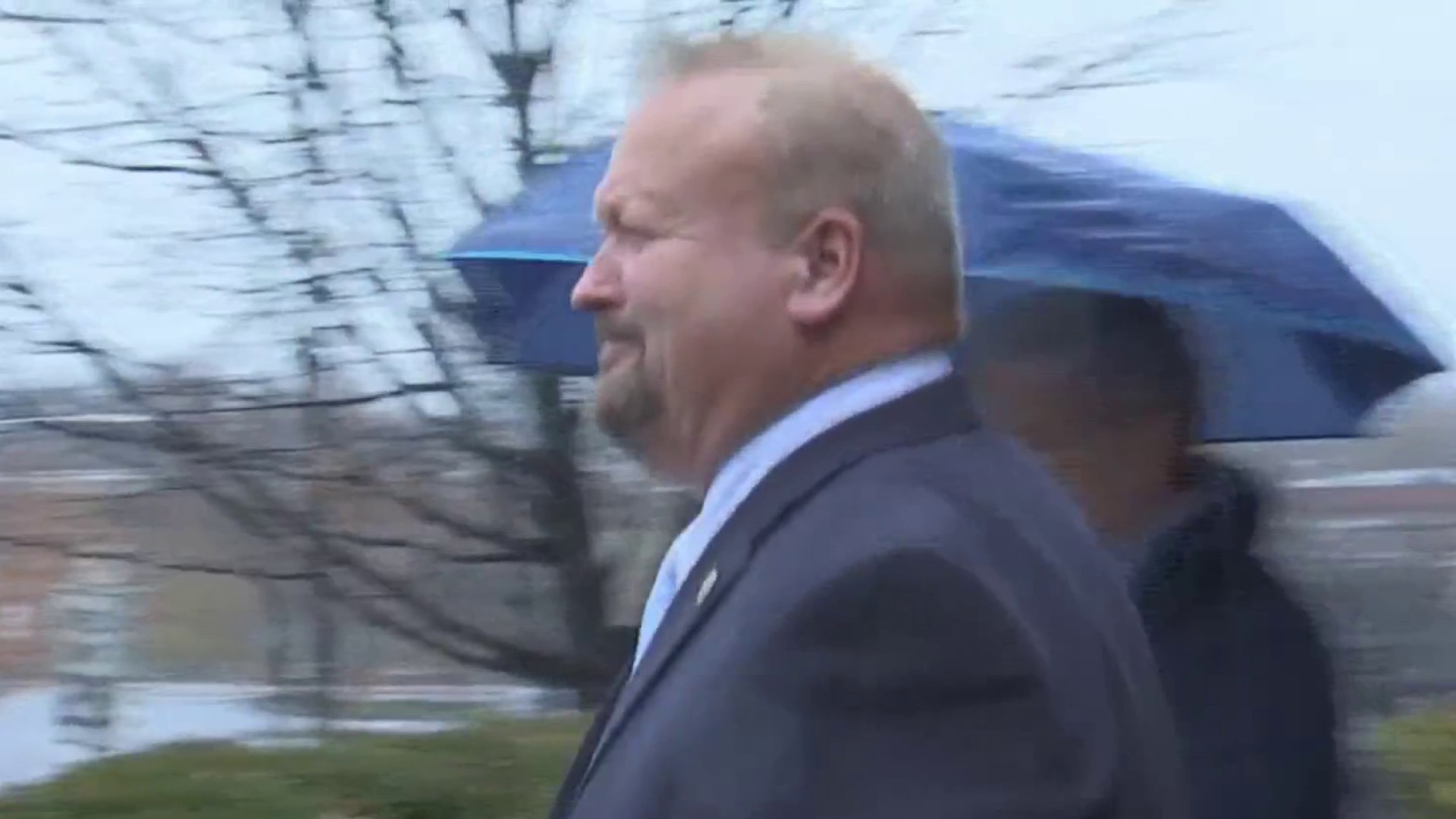Gov. Glenn Youngkin decried the toll of human trafficking and fentanyl on Virginians when he announced plans to deploy troops this summer to the Texas border, where the influx of migrants has soared. But a News4 I-Team review of the mission raises questions about the Virginia National Guard’s ability to combat those problems.
The I-Team reviewed daily summaries of the guard’s nearly $2 million mission and found that, over roughly three weeks, they referred about 1,800 people to border authorities for illegal crossings and 145 people to police. But the reports also show the guard didn’t encounter fentanyl at any point and experienced what one commander described as a “weakening of the deterrent effect of our Soldiers and Airmen” on migrants and alleged human traffickers.
Shortly after Youngkin announced his decision to send troops to Texas, critics pounced on the move as politically motivated, arguing the governor was using the guard to prove his conservative bona fides ahead of a possible presidential bid.
But Youngkin, who was among more than a dozen Republican governors responding to Texas Gov. Greg Abbott’s request for help, insisted Virginia has a stake in what happens on the border.
We've got the news you need to know to start your day. Sign up for the First & 4Most morning newsletter — delivered to your inbox daily. >Sign up here.
Due to the “unmitigated danger posed by the increasing drug supply exacerbating the fentanyl crisis and the impact of criminal activity in the Commonwealth, Virginia will do its part to assist the State of Texas’ efforts,” Youngkin wrote in his May executive directive.
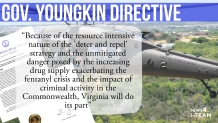
Through an open records request, the I-Team obtained invoices and daily “situation reports” detailing the guard’s July deployment to Eagle Pass, Texas. None of the reports, which outline what the guard observed each day, indicates troops encountered or seized fentanyl.
Local
Washington, D.C., Maryland and Virginia local news, events and information
In an interview with Roanoke NBC affiliate WSLS 10 News during the deployment, the task force’s commander, Maj. Sidney Leslie, acknowledged the members “haven’t seen (fentanyl) in this particular area,” while referring the reporter to the Texas Department of Public Safety for more.
An NPR analysis of federal data in August found nearly 90% of illicit fentanyl is seized at official border crossings -- not spots along the Rio Grande River where the Virginia guard was deployed. According to immigration authorities cited in the NPR report, the majority is smuggled by people legally authorized to enter the country, with more than half by U.S. citizens.
Though the Virginia guard members didn’t find fentanyl, Leslie told WSLS his troops encountered human trafficking “every single day.” But the guard was powerless to arrest bad actors, however, and instead worked to track potential illegal crossings and refer people they suspected of criminal activity to the Texas Department of Public Safety.
Records show the guard recorded 6,717 people they described as “illegal immigrants” – anyone a guard member believed intended to cross into the United States. Of those, the guard referred less than a third – 1,834 – to federal border authorities.
They also reported 145 people they described as criminals to Texas authorities, though it's unclear whether any were charged with a crime.
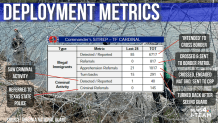
On July 18, their eighth day working the border, the “commander's assessment" reported "a weakening of the deterrent effect of our Soldiers and Airmen," writing, though "soldiers are giving clear commands," human traffickers and immigrants “know that [they] will not use physical force against them.”
The reports also reveal conflict over Virginia’s policy to withhold water to migrants.
On July 22,when the temperature in Eagle Pass reached 102 degrees, the commander’s assessment notes the task force “continues to faithfully adhere to precise special orders, such as not giving water” to migrants, a policy some of the troops reported caused conflict ”between individuals or small groups of officials external to (Task Force) Cardinal, such as questioning why they are not giving (immigrants) water...”
The guard declined an interview request with News4, but in a statement, a spokesman said troops were following Texas’ policy and that Virginia troops only had water for personal needs and “not to operate a water distribution point.”
“For the safety of all involved, the Texas policy was for DPS and CBP to provide water to individuals once they were in custody. While VNG Soldiers and Airmen remained under the control of their Virginia task force leadership and ultimately the Governor of Virginia, they still needed to follow the operational rules established by Texas for the safety and efficiency of the mission,” the spokesman wrote.
After reviewing the I-Team’s findings, Virginia State Sen. Scott Surovell, a Democrat, said, “It just suggests that the mission really was not all that effective and didn't really accomplish its purpose."
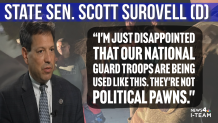
Surovell, who represents Fairfax County, has been a critic of the mission since it was announced, arguing to News4 the money would’ve been better spent on drug enforcement squads and treatment and prevention programs inside the Commonwealth.
The records show the mission cost Virginians at least $1.9 million, with nearly half of that, about $788,000, on salaries; more than $550,000 on lodging and food, and more than $300,000 on travel.
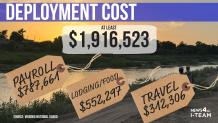
“I can think of a lot better ways to spend $2 or $3 million to help address the fentanyl problem,” Surovell said. “I'm just disappointed that our National Guard troops are being used like this. They're not political pawns.”
Asked about the I-Team’s findings earlier this month, Youngkin defended the mission as “without a doubt” worthwhile.
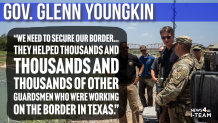
“We need to secure our border,” Youngkin told the I-Team, adding the troops did so by helping “thousands and thousands and thousands of other guardsmen who were working on the border in Texas.”
At the conclusion of the 30-day deployment, the commander of the Virginia National Guard task force also declared the mission “highly effective.”
This story was reported by Ted Oberg, produced by Katie Leslie, shot by Steve Jones and edited by Jeff Piper. WSLS 10 News anchor John Carlin and photojournalist Jeff Perzan contributed to this report.


